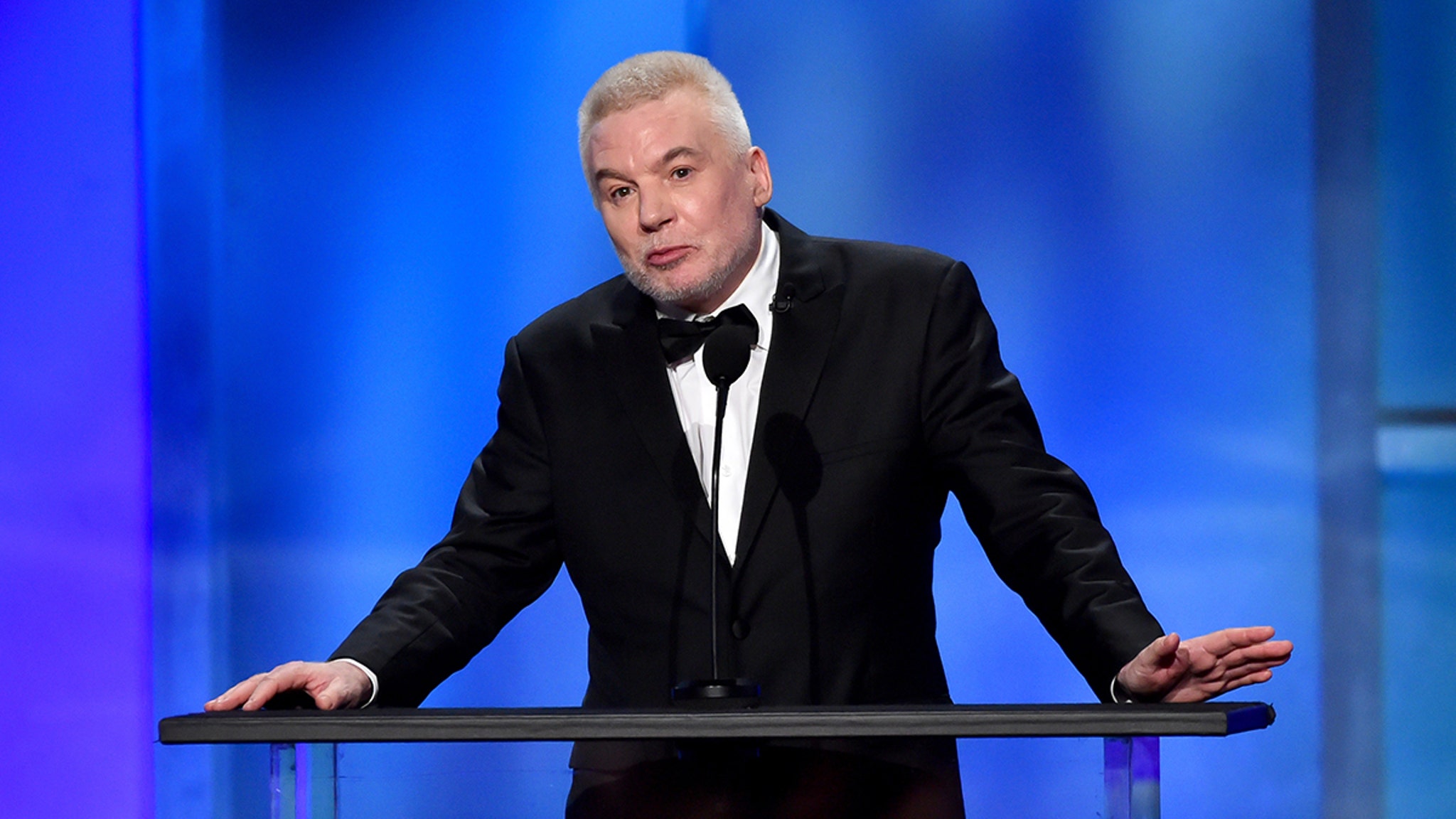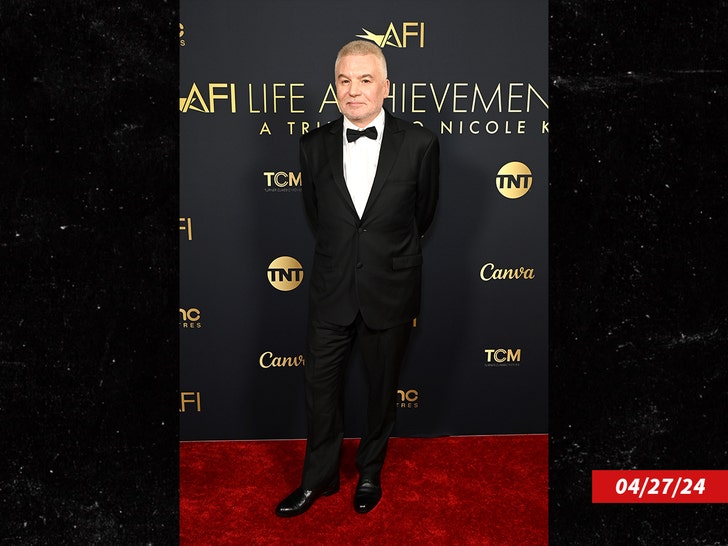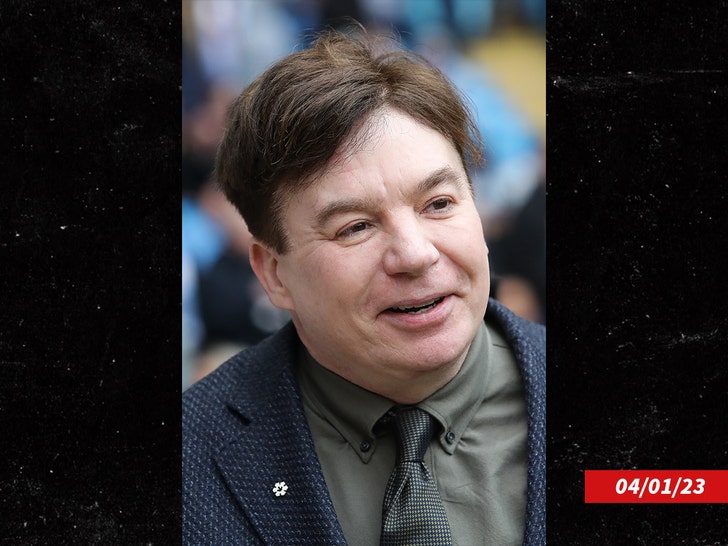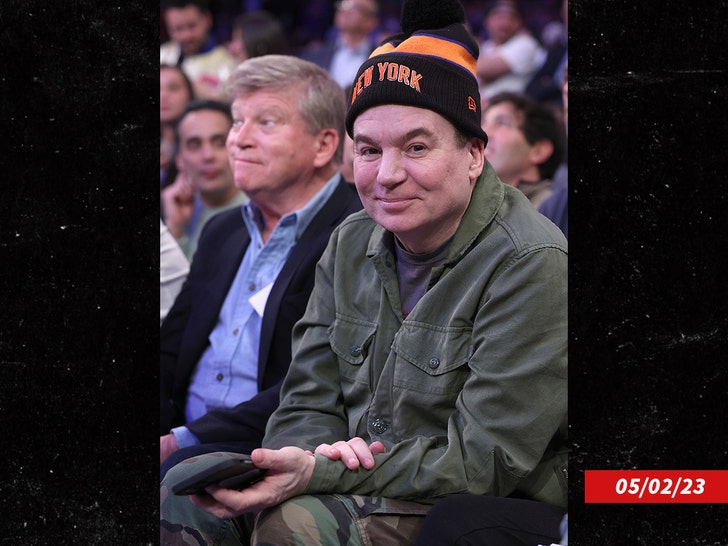Lifestyle
A first date turns into a whodunit in 'Diarra from Detroit'

Diarra Kilpatrick stars as a school teacher-turned-mystery solver in Diarra from Detroit.
BET Network
hide caption
toggle caption
BET Network

Diarra Kilpatrick stars as a school teacher-turned-mystery solver in Diarra from Detroit.
BET Network
Detroit native Diarra Kilpatrick has always wanted to share her version of the city with the world: “For me, the gems of Detroit have far outweighed some of the more challenging aspects of growing up there,” the actor, writer and producer says.
Kilpatrick’s new BET+ series, Diarra from Detroit, is inspired, in part, by the time she spent as a little girl watching Columbo and Perry Mason with her grandmother. Kilpatrick notes that despite the fact that all the women in her life seemed to be obsessed with murder mystery shows back then, she never saw Black women driving the narrative.
Diarra from Detroit is a dark comedy about a public school teacher going through a divorce who decides to hit the dating scene. When a guy she meets on Tinder ghosts her, Diarra goes on a hunt to find out why — and winds up embroiled in a decades old mystery.
Kilpatrick says she was initially reluctant to use her own first name in the title for the show because she was concerned that the audience would assume she was simply being herself instead of playing a character. But as the show progressed in development, the decision began to feel right.
“It felt like it was like an announcement,” Kilpatrick says. “Almost, like ‘Diarra from Detroit is ready to be seen!’ ”
In addition to working on this latest series, Kilpatrick is an actor, writer and producer who created and starred in the ABC digital original satirical comedy American Koko, for which she was nominated for an Emmy Award. She also co-starred for three seasons in the HBO period drama Perry Mason.
Interview Highlights
On her tendency to joke about dark things
My father, the only way to describe him is just a damn fool. He cannot take anything seriously. They say comedy is tragedy plus time. He doesn’t need the time. It’s just … funeral, joke. Someone’s hurt, joke. It’s never too soon, joke. So he just really doesn’t have the ability to take anything seriously. And I think my mom took everything really seriously and had a tremendous amount of depth of feeling and thought and everything. And so I think making sense of the two of those personalities within myself, has kind of been my lot. And I think making sense of comedy and depth is probably a hallmark of my work.
On casting Diarra from Detroit by listening to the actors’ voices
It’s in the voice. I could be playing auditions on the computer and walk away from the computer to get a cup of tea or something, and the voice will drive me back. We’re not really doing the vocal fry thing in the Midwest. We’re not really doing the pitching up thing in the Midwest. Detroit is a southern town up north for me. And so it’s that bit of southern in the voice, it’s that bit of bass in the voice. Assuredness in the voice. I could tell it immediately.
On learning to drop her Detroit accent in acting school, but then using it to get roles afterward
I went to theater school, too, and they beat me up pretty good when I first got there. … They were like, “Ma’am, what is this accent that you have? Your vowels are all over the place. You sound a hot mess.” … Even though I did love being at Tisch and that training, I didn’t love the kind of judgment that I felt about my accent and being the only Black girl in studio. It was like, “We got to fix that!” Because as soon as you graduate, no one’s asking you to speak the King’s English. As a dark skinned, Black, 20-something actress, they want your regional dialect. A lot of times you’re going out for Prostitute No. 4. They don’t need you to sound like you’re doing a Shakespearean play. So that part of it was interesting to kind of lose it and then kind of learn to regain it, because that’s what the industry was requiring of me. And I did wish that it had been framed that way for me in school. Like, there’s nothing wrong with your accent. In fact, you’re probably going to work more with your regional dialect and without it.
On seeing the beauty in her Detroit childhood
I grew up in the city. When I was really young, we didn’t have a lot of money. My mom and I lived in Section 8. We lived in Calumet Townhomes right off the Lodge Freeway. … I had a very idyllic childhood. I have a very pristine idea of what it was to grow up in that Section 8 housing community. And I think it was in part my imagination.

It’s not there now, but there used to be, right across from where I grew up, this big field. It was an empty field, and I would cut across that field to get to the corner store whenever my mother would bless me with a couple dollars to go get ice cream or whatever. And that field, in my imagination, in my mind, was honestly like Maria von Trapp, like The Sound of Music, like Austrian vistas and mountains. The grass was so high. I would go in that field and pick flowers for my mother. I would sing and dance and get lost in that field. And it wasn’t until I was much older that I was like, “That was an empty lot. The grass was mad high because it should have been cut. Those were dandelions. They’re not flowers.” There was a church bell that would ring. I was always like, this is magic, because I guess that’s just the love that I felt. And that’s just something about me.
So I do realize not everybody has that point of view on it. I’m able to see the beauty of it. I also am able to recognize that there are challenges and there are things there that need to be fixed. So I feel like I can make room for both.
On the “angry Black woman” stereotype
It is a trap. They have made us afraid of our anger. … But at the end of the day, anger is so beautiful and so powerful to me. Nothing changes unless someone gets angry. Obviously you don’t just want to aim a bunch of unwieldy anger all over the place. That’s not going to be constructive either. But there is great information in your anger. There’s great direction in your anger. And, of course, there’s great change that comes out of somebody being like, “I’m mad as hell and I’m not going to take it anymore.” … I think that when Black women are afraid of it, it will siphon off some of your power and your intuition and your drive.
On seeing a mural for the show in Detroit
I got a chance to go to Detroit with my husband and my baby and my sister and my oldest friend in the world, and we stood out there and took pictures. And it was a beautiful moment. … I was trying to figure out how do I take a brick wall back on the plane with me? But it was a really beautiful moment. And I have to shout out Sydney James, who was a wonderful muralist in Detroit, who created it with her team. And I just try to keep my head down and do my work. I’ll try to listen for my assignment and just follow and be obedient to it. But there are those moments that kind of shake you, like, “Girl, you’re doing it. You’re doing it! Your face is on this whole wall!” That’s crazy. And it was a really touching, lovely moment.
Lauren Krenzel and Susan Nyakundi produced and edited this interview for broadcast. Bridget Bentz, Molly Seavy-Nesper and Beth Novey adapted it for the web.

Lifestyle
As National Poetry Month comes to a close, 2 new retrospectives to savor

W. W. Norton & Company, Alice James Books

W. W. Norton & Company, Alice James Books
With National Poetry Month comes spring flowers and some of the year’s biggest poetry publications. And as April wraps up, we wanted to bring you two of our favorites — retrospective collections from two of the best poets of the late 20th and early 21st centuries: Marie Howe and Jean Valentine.
Howe’s New and Selected Poems makes a concise case for Howe’s status as an essential poet. The New & Collected Poems of Jean Valentine gathers all of the beloved late poet’s work, a monument to a treasured career.
New and Selected Poems by Marie Howe
Marie Howe is writing some of the most devastating and devastatingly true poems of her career — and some of the best being written by anyone. Her subject matter, from a bird’s eye, is simply the big questions and their non-answers: What are we here for? What does it mean to do good? What have we done to the environment? What are the consequences and what do we who are here now owe to those who will follow us? And yet her tone and straightforward delivery make her poems as approachable as friends. Howe is the rare poet whose poems one wants to hug closely for company, companionship, and empathy; and yet they are works of literature of the highest order, layered, full of booby traps and shoots and ladders that suddenly transport one between the words. It’s tough love that these poems offer, but it’s undeniably love.
This first retrospective gathers a book’s worth of new poems along with ample selections from of Howe’s four previous collections, each of which was a landmark when it was published. Her nearest antecedent might be Elizabeth Bishop, who also didn’t write very much, or didn’t publish very much, but everything she wrote was good if not capitol-G-Great. Howe is best know for What the Living Do (1997), which remains one of the great books on youth and grief, regret, and moving forward if not moving on. It regards a world in which “anything I’ve ever tried to keep by force I lost.” Startling, almost koan-like statements like this erupt out of unassuming domestic scenes, making everyday life into high drama.
The typical speaker of a Howe poem is a woman who seems much like Marie Howe, even when she is speaking through the voice of the biblical Mary, as she does in Magdalene (2017): “I was driven toward desire by desire.” She is serious except when she’s funny, though she’s rarely laugh out loud funny — it’s more of a kind of internal laughter, either like blossoming light or paper rustling in one’s chest. She is consoling, except when she is taking herself and readers to task, bowing under the simple, Herculean responsibilities that come with living a life, being a parent. She’s tough, sometimes even stoic, except that in almost every poem there is a moment of surprise, a revelation, a piercing insight that injects a kind of pure ecstasy.
Some of the new poems are among the best Howe has written, making them among the best period. Set “In the middle of my life — just past the middle,” these poems grieve lost friends; reckon with the sudden adulthood of a daughter; lament the destruction of the environment; and take the moral measure of this very disturbing era. Each of these everyday dramas becomes an access point for the deepest kind of human reconciliation, where we must finally admit where language fails us. These poems also feature a recurring character, “our little dog Jack,” who, with all best intentions, becomes one of Howe’s most devastating metaphors. But all metaphors have their root in plain fact. As Howe writes in “Reincarnation,” one of her best poems, “Jack may be actually himself — a dog.”
Light Me Down: The New and Collected Poems of Jean Valentine
This is one of those monumental events in American poetry: the life’s work of a major poet gathered in one big book, an opportunity to revel in all that Jean Valentine accomplished in her long and prolific career. As a young poet, Valentine (1934-2020) won the Yale Series of Younger Poets prize in 1965, for her debut collection, Dream Barker. In 2004, she won the National Book Award for Door in the Mountain: New and Collected Poems 1965-2003. In between, and after, she was always well regarded by the mainstream poetry establishment, winning most of the prizes available to an American poet.
But Valentine’s real influence was as a friendly ambassador to and from the avant-garde. It’s hard to pin Valentine’s poems down: I wouldn’t call them experimental, but they are anything but straightforward in their slippages of thought and wide leaps of association. Fairly early in her career, Valentine begin working in a style that had her teasing the reader with images, gently suggesting the way the poem should go, until, perhaps, a thunderclap at the end disturbs the calm. She always knows where to end. Pick almost any poem and the last couple of lines will shock you with their unlikely inevitability.
Valentine writes about everything — love, death, sex, the roiling political situations of the last half-century — with simultaneous candor and mystery: “I have been so far, so deep, so cold, so much,” she says prophetically in an early poem. She asserts that poetry can be made almost entirely through suggestion, that the poet must trust the secret links between one word and another, and trust that the reader will be willing to travel with the poet along those underground currents. In a short poem, a haiku from 1992, “To the Memory of David Kalstone,” dedicated to the literary critic who died in 1986, Valentine offers as succinct a statement of her poetics as one could want: “Here’s the letter I wrote,/ and the ghost letter, underneath—/ that’s my life’s work.” Valentine’s poems draw our attention to the words beneath the words, what’s said between them, in all the white space surrounding the poems.
Elsewhere Valentine opts for simple observations, stirred by a bit of mystery, as in the brief elegy “Rodney Dying (3)”:
“I vacuumed your bedroom
one gray sock
got sucked up it was gone
sock you wore on your warm foot,
walked places in, turned,
walked back
too off your heavy shoes and socks
and swam”
There are no sudden bolts of profundity here, nothing, really, that you could call insight, at least not overtly. Instead, Valentine asks an object, the sock, to carry the grief. This is a technique poets call the “objective correlative” — it’s an image that stands in for an emotion or knot of emotions. That unassuming object, or really just the word for it — sock — becomes a vessel, a kind of canopic jar to contain grief, but also to let it rattle around a bit. The poem ends with what might be an allegory for death, but is also a celebration of Rodney’s vitality. The language is as plain as can be, and yet I exit the poem with uncertainty, equally hopeful and despairing. Valentine is an expert at tensing these sorts of contradictions against one another. The emotional climate in Valentine’s poems is ambivalent in the best way, lit by contradictory energies.
And while this book is a monumental celebration of an extraordinary legacy, it is also sad to hold: Valentine was in an inexhaustible and generous force in American poetry until so recently. It feels impossible to accept the fact that she is dead while reading poems that are so profoundly alive.
Craig Morgan Teicher is the author of several books, including The Trembling Answers, which won the 2018 Lenore Marshall Poetry Prize from the Academy of American Poets, and the essay collection We Begin in Gladness: How Poets Progress.
Lifestyle
Mike Myers Debuts White Hair in First Public Appearance in Over a Year

Mike Myers returned to the spotlight for a rare public appearance this weekend … but folks had to do a double take, ’cause nobody could recognize him with his new hair color.
The actor stepped out Saturday for the 49th AFI Life Achievement Award Gala in L.A. — where Nicole Kidman was being honored — which marked his first time at a public event in about a year.

Mike looked unrecognizable with short white hair — but was rocking it proudly as he spoke onstage at one point … and posing for tons of pics before heading inside, all smiles.
He was even taking photos with fans too … acting goofy and posing for a bunch of selfies.
Mike has always kept a relatively low profile … as he and his wife, Kelly Tisdale, are known for keeping their home life super private. So, seeing MM out and about like this is pretty remarkable — especially since he’s a silver fox now, and totally leaning into it.

The last few times Mike was out in public was in April and May of 2023 — in April of that year, his was quite a bit longer … and more importantly, it was the same color of brown we’ve seen him in for years now.

In May, the guy was at a basketball game — with pretty damn good seats, it seems — but there … he was wearing a beanie, covering up his ‘do. Since then, he’s been kinda MIA.
Anyway, it was clearly a big enough occasion to get Mike out of the house and into the public eye again — remember, this was all about Nicole … and anyone who’s anyone showed up to give her her flowers, including a ton of celebs.
Among the stars in attendance … Reese Witherspoon, Joey King, Michelle Pfeiffer, Jane Seymour, Miles Teller, Naomi Watts, Morgan Freeman and lots of others.
Mike certainly stood out though … and we gotta say, he’s looking real sharp these days!
Lifestyle
In 'Dead Boy Detectives,' two best mates reject their deadly fates : Pop Culture Happy Hour

-

 Kentucky1 week ago
Kentucky1 week agoKentucky first lady visits Fort Knox schools in honor of Month of the Military Child
-

 News1 week ago
News1 week agoIs this fictitious civil war closer to reality than we think? : Consider This from NPR
-

 World1 week ago
World1 week agoShipping firms plead for UN help amid escalating Middle East conflict
-

 Politics1 week ago
Politics1 week agoICE chief says this foreign adversary isn’t taking back its illegal immigrants
-

 Politics1 week ago
Politics1 week ago'Nothing more backwards' than US funding Ukraine border security but not our own, conservatives say
-

 News1 week ago
News1 week agoThe San Francisco Zoo will receive a pair of pandas from China
-

 World1 week ago
World1 week agoTwo Mexican mayoral contenders found dead on same day
-

 Politics1 week ago
Politics1 week agoRepublican aims to break decades long Senate election losing streak in this blue state















